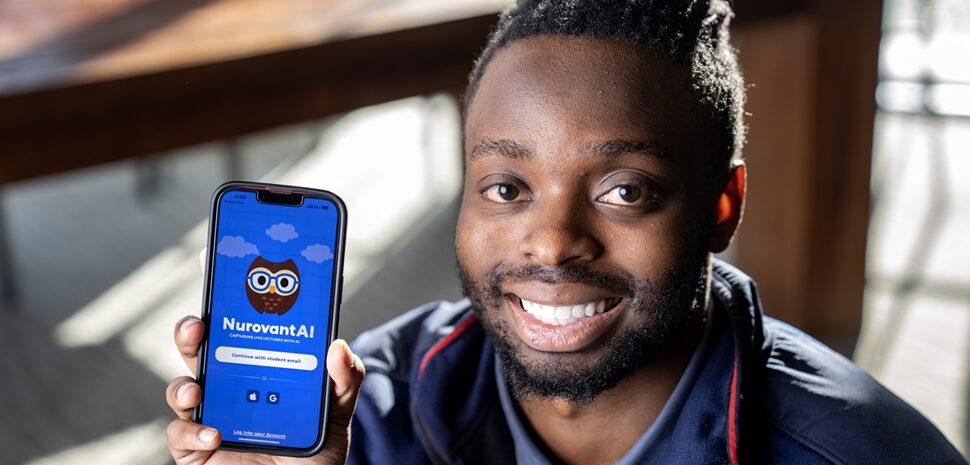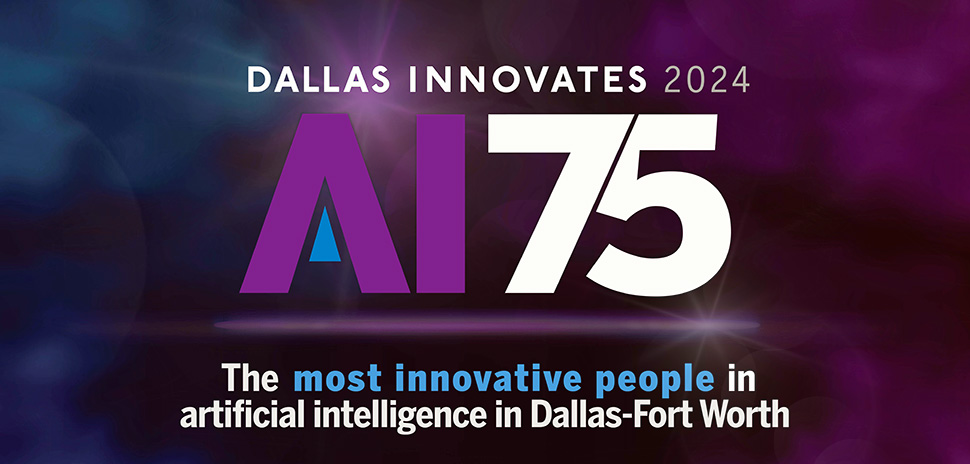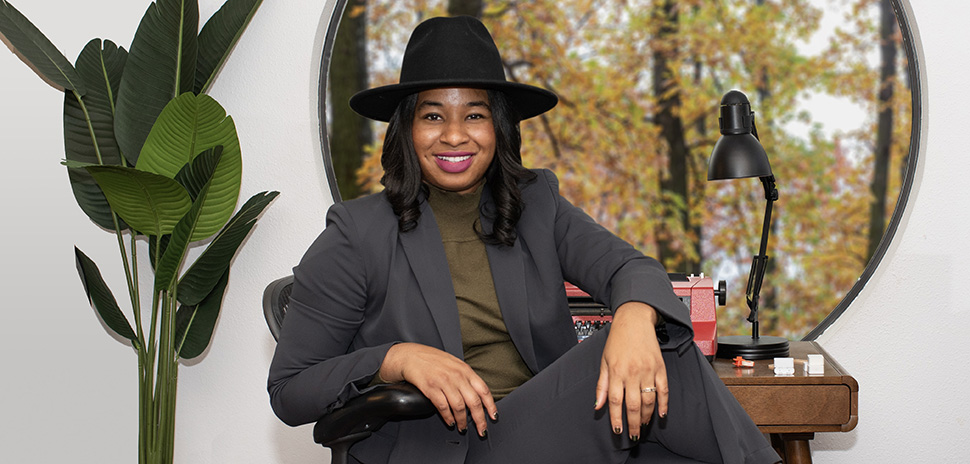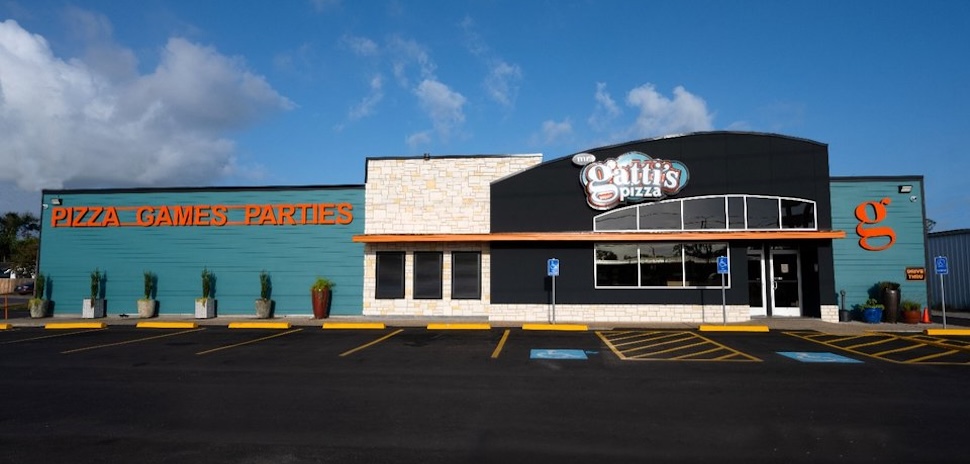Trevor Gicheru, a junior at SMU, was trying to solve his own learning challenge and created Nurovant AI — an artificial intelligence-powered learning app designed to make large amounts of content more manageable for students and help them focus on key themes.
Think of it as a private tutor in your pocket. For example, in an audio clip, the AI picks out the most salient parts and reinforces them to the user through question and answer.
“You can upload content or set to capture the classroom lecture, and in seconds Nurovant AI creates flashcards and quizzes to help you study,” says Gicheru.
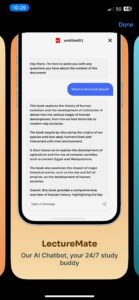

Becoming a founder was always on his radar, growing up with two parents who are entrepreneurs. In fact, his first attempt at starting a business happened while he was at St. Mark’s School of Texas. His idea was to develop an AI scribe for doctors and bring it to market. But at that time, his technical skills weren’t strong enough to make it happen.
“Coding challenges were beyond my abilities,” he says. He realized that before he could create any AI-powered tool, he needed some time to improve his technical skills.
After graduation, he attended Oberlin College for one semester and played football, which was fun, but he knew football wasn’t going to be his future.
“I was studying computer science …” And he found himself at a crossroads: continue in Ohio or come back to Dallas.
“When I got serious about comparing academic programs, I realized that SMU has a couple of entrepreneurship programs that sounded interesting,” he says.
His next idea hadn’t fully formed yet, but he thought learning the fundamentals of entrepreneurship, including how to pitch, would help him in future endeavors, so he returned to North Texas and became a Mustang at SMU.
Between SMU’s Big iDeas — a program aimed at undergraduates who want experience learning how to pitch, and guidance on their entrepreneurial projects — and its Business Accelerator Program (BAP) in the graduate school, Gicheru felt confident he was in the right place.
And then one day, while in science class, the idea for his startup emerged. He would use his computer science background to create an app to help students learn.
“I was the original use case,” he says.
His ADHD made it difficult for him to stay present in class — listening to lectures and class discussions while taking notes was a constant challenge. He tried recording classes but realized it wasn’t efficient, and just presented the same problem twice. He thought AI might be the answer.
“My first product was an app that would use a recorded audio clip to create quizzes,” says Gicheru. “I built it up on campus and brought in some initial investment through that.”
What is now known as Nurovant AI was initially a business-to-consumer product, giving students direct access to the technology. He relied on word-of-mouth, Google Ads, and SEO to get the word out, promoting the app through social media channels.
“We got to several thousand monthly active users and hundreds of thousands of signups,” he says.
That momentum is translating into funding. As of this writing, he’s raised $345,000 and is using the funds to scale and evolve the product.
Though initially, the app only worked with recorded audio, it can now be used during live presentations. In addition to flashcards, quizzes, and summaries, chatbot capabilities have also been added.
“We’re working with schools to integrate tools like Zoom for virtual classes,” he says.
With its fast growth and wide appeal, K12 schools, as well as higher-ed institutions like Harvard, MIT, UT-Austin, and Texas A&M, have joined SMU in supporting the venture.
Gicheru has also raised funds from 2 The Moon Ventures and Westcott Investment Group.
Additionally, Gicheru recently found out he’s in the next Techstars cohort and hopes to raise a two-to-three-million dollar seed round in early 2025.
Voices contributor Nicole Ward is a data journalist for the Dallas Regional Chamber.
![]()
Get on the list.
Dallas Innovates, every day.
Sign up to keep your eye on what’s new and next in Dallas-Fort Worth, every day.

